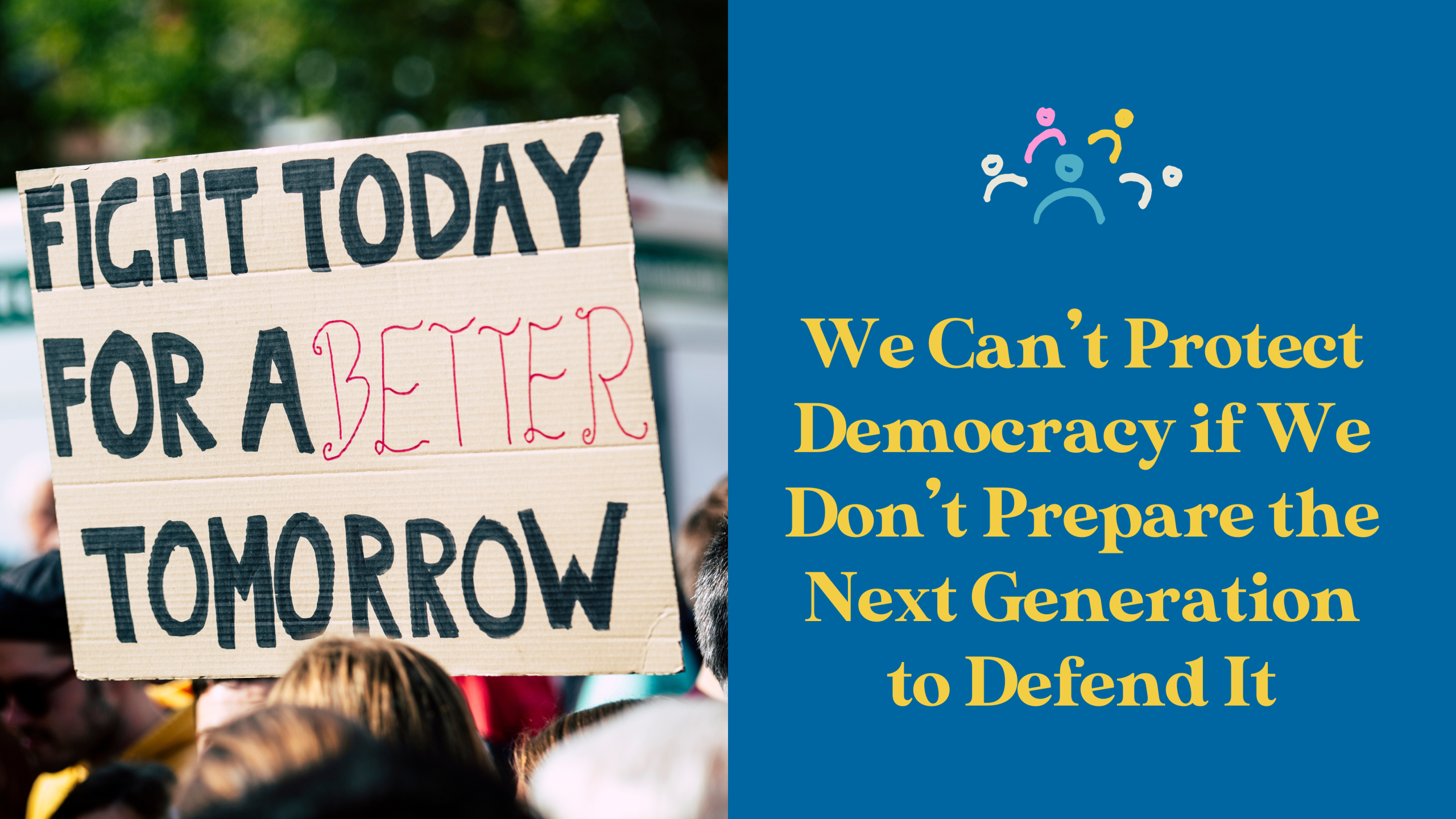We Can’t Protect Democracy if We Don’t Prepare the Next Generation to Defend It
By: Hamse Warfa
As military vehicles rolled through the streets of Los Angeles this week in response to sweeping federal immigration orders, the scene was jarring — and deeply telling. The use of the National Guard and U.S. Marines to manage civic protest, particularly around immigration policy, wasn’t just about crowd control. It was a signal. A reminder that dissent in America is increasingly met not with dialogue, but with force.
And as the nation debates the legality of these orders, another question looms: What are our schools doing to help young people understand and navigate moments like this?
For millions of students, especially those from immigrant families, this is not a theoretical civics lesson — it’s real life. It’s family life. And yet, the way we teach civics today often ignores the messiness of democracy in practice. We ask students to memorize amendments, but rarely explore how those rights are contested in real time. We teach about voting, but don’t prepare them to interrogate power or advocate for justice in their own communities.
At a recent panel I participated on education and complexity in New York, author Anand Giridharadas named this disconnect. “We sanitize the world for young people,” he said. “And then we wonder why they don’t know how to respond when things get complicated.” But complexity isn’t a bug in our system — it’s the defining feature of modern civic life. If we want young people to inherit democracy, they must be equipped to understand — and shape — it.
This means we need a new definition of readiness. Not just college- and career-ready. But democracy-ready. That includes the ability to analyze competing narratives, to collaborate across lines of difference, to ask hard questions, and to act with integrity and care. It means recognizing that civic education is not a single subject but a through line — embedded in science, art, history and math. It means creating classrooms where students wrestle with current events, not avoid them.
Too often, educators are told to steer clear of anything “controversial.” But what’s at stake now isn’t just comfort — it’s democracy’s health. Silence in the face of injustice isn’t neutrality. It’s complicity. And when schools go quiet in moments of political tension, students don’t feel safe — they feel abandoned.
What we saw in Los Angeles wasn’t just a policy flashpoint. It was a stress test for our democratic infrastructure. And our education system is part of that infrastructure. If it isn’t preparing students to engage with the world as it is — to question, to speak, to lead — then we are not just failing them. We are weakening the very foundation of our democracy.
This is the moment for bold investment and leadership. School systems must prioritize civic readiness as core to their mission — not an extracurricular or occasional theme. And those of us in the broader social sector — philanthropy, nonprofits, business and policy — must act as co-architects, not just supporters. That means shifting resources, rethinking outdated metrics and pushing back against the forces that aim to depoliticize public education for the sake of comfort or control.
Our democracy is being shaped right now — in statehouses, in streets and, yes, in classrooms. Whether our young people are ready to inherit it will depend on whether we choose to show up — not with platitudes, but with action.
We are long past the point of asking if civic education matters. The only question left is whether we will do what it takes to make it count.
